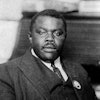When Earl Edwards came to the University of California Los Angeles (UCLA) to interview as a doctoral candidate, something felt different about the interview process. He looked around at the other would-be students, hoping to join the urban schooling division of the graduate school of education and information studies. Most of them were Black.
“The overwhelming number of Black candidates shifted the culture of how the environment felt,” he said. The majority were “first generation, who were interested in social-justice-oriented research and had a really keen eye on people of color in Black and Brown communities and inner cities.”
They had a lot in common. Even if students were competing for scarce positions, “it wasn’t really as tense in terms of the competition,” he added. As they waited, students were “interested to learn about each other and building rapport and sharing resources.”
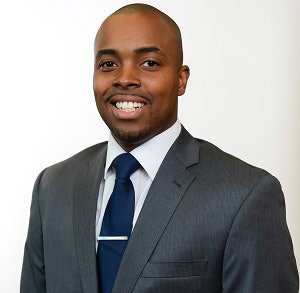 Earl Edwards
Earl EdwardsWhen Edwards came to campus, his cohort was almost entirely Black, except for one student. The group had already built a “really strong connection.”
Other members of the cohort include Travis Dumas, Tr’Vel Lyons, Jamelia Harris, Terry Allen and Menissah Bigsby.
“That made my community, my sense of belonging, at UCLA really unique,” he said.
That was intentional. Black faculty in the urban schooling division, with support from their colleagues, have been proactively recruiting Black doctoral students, taking a cluster hire approach to graduate education.
According to Dr. Tyrone C. Howard, a professor of education at UCLA, “critical mass” is crucial for retaining Black doctoral candidates. Howard, who is one of the nation’s most prominent scholars, also directs the UCLA Pritzker Center for Strengthening Children & Families, the Center for the Transformation of Schools and the UCLA Black Male Institute.
Coming in as a cohort enabled students to “connect and create a sense of community, and that makes all the difference in the world,” he said. “The literature has been clear that when students feel a sense of connection to a place and to other people, they tend to do well, at the graduate and undergraduate levels.”
It worked. The students grab meals together and swap notes, sharing resources from their respective research areas, which has a “magnifying effect” on all their scholarship, Edwards said. But for him, it’s not just about his peers but also the faculty.
He and his colleagues were attracted to the division because of its strong core of Black professors already doing research on racial equity, the kind of research he wanted to do. A former teacher, who experienced homelessness for six years as a kid, Edwards now studies how systemic racism impacts homeless youth.
For Dr. Tunette Powell, who graduated with her Ph.D. in June, it was especially meaningful to have an advisor who was also a Black mother, Dr. Kimberley Gomez.
“I absolutely had to work with her,” Powell said.
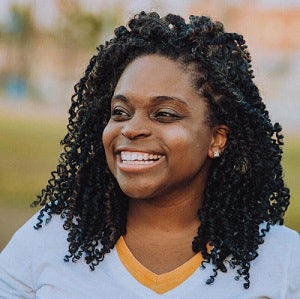 Dr. Tunette Powell
Dr. Tunette PowellPowell started the program with three kids at home. Now she’s the director of equity, inclusion and community at the Mirman School and teaches critical race theory as a part-time instructor at UCLA.
Like Edwards, she was drawn to the division because of its Black faculty. After her four-year-old son was suspended from school in 2014, she wrote and gave presentations about her experiences as a Black parent, against the backdrop of her own childhood history of suspensions as she struggled with the incarceration of her father, a recovering drug addict. She was asked to speak on a panel with Dr. Pedro Noguera, then a professor at UCLA and now the dean of the University of Southern California’s school of education. His name stuck with her when she decided she wanted to get her Ph.D. to better tell the stories of Black parents.
Like Edwards, it stuck out to her that the interview process was “a super Black space,” and for the first time, most of her classes were taught by Black professors, which she found “shocking” and “beautiful.”
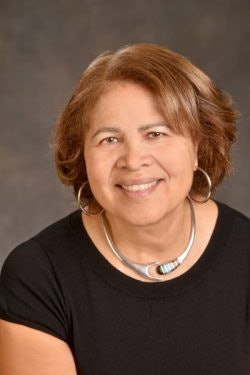 Dr. Kimberley Gomez
Dr. Kimberley GomezIt hasn’t all been rosy. She described her graduate education as a “layered experience.” As a Black female doctoral student, she sometimes faced the “intersection” of sexism and racism. For example, on multiple occasions, faculty members presumed she was a single mother, when her husband is an active parent, she said. She also had to argue to include slam poetry and hip hop in her dissertation, “a storytelling method in the Black community for decades.”
There were “moments of joy” and “moments of fight” that point to the systemic changes universities, including hers, need to make to support students as their “full selves,” she said. But in those moments, having a real Black doctoral student community, not just one or two peers, “was incredibly important for my journey.”
Edwards stressed that not all cohorts in the school are like theirs. His wife, who’s in a different division of the graduate school, has had a very different experience, he said. He and other Black doctoral students recently sent a list of demands to the dean to try to replicate what they have for future cohorts. The dean’s response felt “positive overall” and students are in the negotiation process.
From Edwards’ perspective, Black faculty worked to make his cohort a reality, but for the school it was a “great accident.” He wants the university to make “more codified” changes, which include hiring more Black faculty across divisions to mentor more Black students.
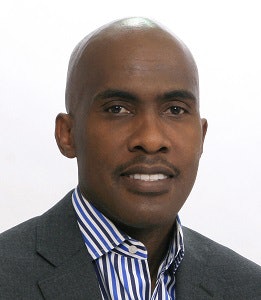 Dr. Tyrone Howard
Dr. Tyrone HowardTo Howard, a key step is having an “unapologetic” and “laser-like focus” on finding Black talent, then giving students the “time and attention” they need to thrive, just like universities scout out athletes.
For example, he was in touch with Edwards a year before he even applied. When Edwards emailed him to show interest in the program, the professor invited him to meet on campus.
Howard also runs the Black Male Institute, which grew out of an organic community that formed as Black undergraduate and graduate students regularly filtered in and out of his office. Now the institute offers research and co-publishing opportunities, as well as connections across the school.
He wants this cohort to be “the norm,” not an “anomaly,” Howard said. “We know what it takes. That doesn’t mean that we’re perfect, I think there’s still a lot more work we can do, a lot more that we could do better in, but I think this model at least speaks to what can be done.”
Sara Weissman can be reached at [email protected].




